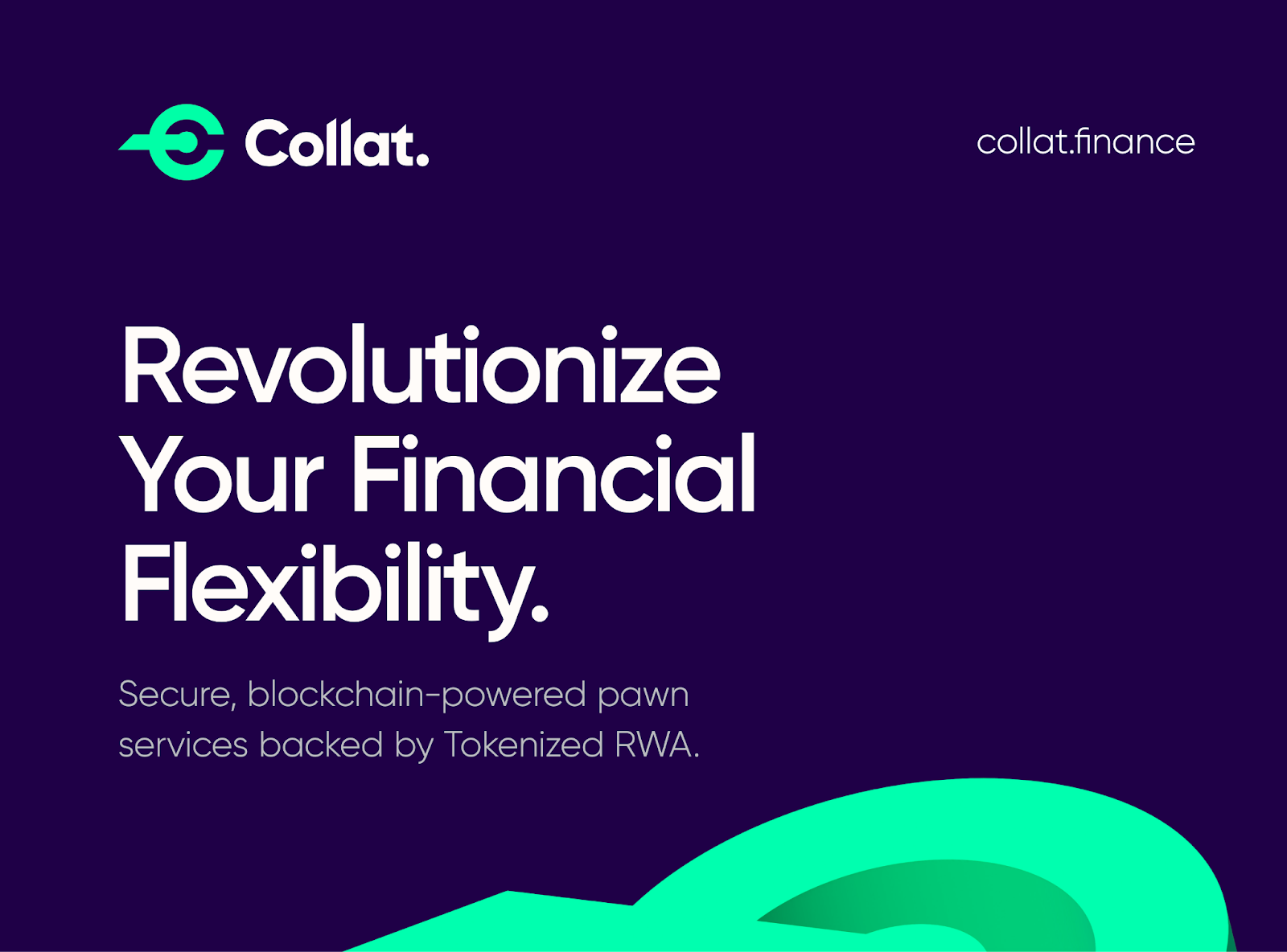Business
Collat Finance Launches Blockchain-based Lending Platform on Solana

Collat Finance recently launched a new lending platform on the Solana blockchain that enables both businesses and individual asset owners to obtain liquidity by tokenizing real-world assets (RWA). This platform is designed to offer an alternative to traditional credit sources, leveraging blockchain technology to facilitate secure and transparent financial transactions.
The decentralized application (dapp) developed by Collat Finance simplifies the loan process, allowing for quick loan approvals and enabling users to access the funds they need efficiently. At the same time, it provides lenders with clear and attractive investment options. An essential feature of the platform is its AI-driven valuation engine, which ensures that asset appraisals are both accurate and fair, enhancing the borrowing experience.
The operation of Collat Finance involves a network of C-nodes and P-nodes that verify the authenticity and condition of physical assets for tokenization. Following approval, assets are digitized, representing ownership in digital form and making them ready for the lending process. This method not only makes capital more accessible by reducing reliance on traditional banking intermediaries but also maintains transparency and security throughout the process.
The governance structure of the platform is managed by a Decentralized Autonomous Organization (DAO), known as the $COL DAO. This organization is crucial for decision-making concerning the platform’s future, ranging from updates and rule changes to the management of the treasury. Holders of $COL, the native utility token of the platform, automatically become members of this DAO, supporting a decentralized governance model.
The tokenomics of $COL are structured with a total supply of 50 million tokens, allocated across different groups to support growth and ensure a fair distribution of benefits. These allocations include 14% to founders and advisors, 50% to the presale, 15% for liquidity provision, 15% for staking rewards, and 6% for the DAO vault.
Collat Finance allows for the tokenization of various assets, from inventory to real estate, making the borrowing process decentralized and secure. This is particularly beneficial for small and medium-sized enterprises (SMEs) that often face challenges in securing loans from traditional financial institutions. Through Collat Finance, these businesses can access essential capital, which can enhance their operations and potential for growth.
Feedback from the financial and tech communities has been positive. Richard, an advisor for Collat Finance, commented on the platform’s approach to lending, noting that it uses blockchain technology to enhance efficiency, transparency, and accessibility in financial services, thereby transforming how businesses globally can manage and access capital.
As financial landscapes evolve, Collat Finance is poised to introduce new standards in how technology can be utilized to enhance and democratize financial services across the world.
For more details on Collat Finance and its services, interested individuals are encouraged to visit the official website https://collat.finance, explore the Collat whitepaper, or join the active community on platforms like X, Telegram, and Discord for updates and further information on opportunities within the Collat Finance ecosystem.
About Company:
Collat Finance is a blockchain-oriented lending company that utilizes the Solana network to facilitate the tokenization of real-world assets. The company provides a decentralized application (dapp) that streamlines the lending process, offering quick and efficient access to capital. By integrating advanced AI for asset valuation, Collat Finance enhances the transparency and security of financial transactions for both borrowers and lenders.





















